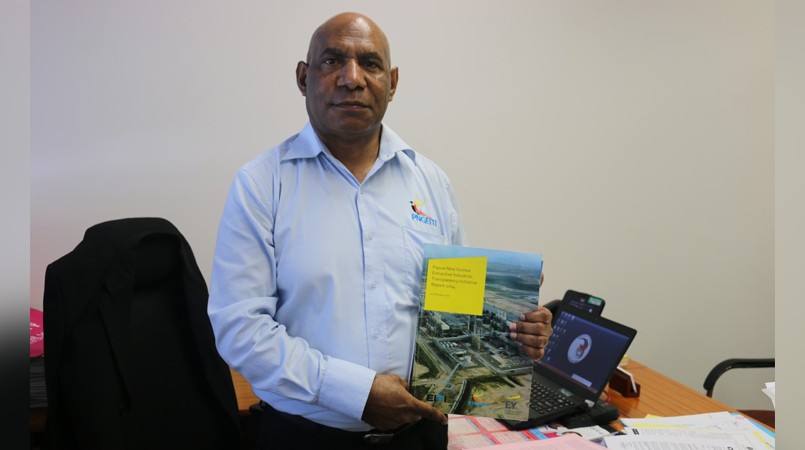
Over 80 per cent in export revenue was received from the mineral sector according to the latest PNG Extractive Industry Transparency Initiative (EITI) report on the extractive industry in PNG.
This is highlighted in the PNG Extractive Industry Transparency Initiative (EITI) latest report of the industry.
According to the report, total value of mineral exports from PNG mines for 2014 was K17, 522.5 million comprising 84.18 percent of total export value.
Overall the mining and petroleum sector contributed 12.7 per cent of government revenue in 2014 compared with 7.5 per cent in 2013.
The report states this increase correlated with the commencement of the PNG LNG Project.
Further the report noted the government’s attempts through policy intervention to manage fluctuating government revenue due to global commodity prices, as in the case of the Sovereign Wealth Fund (SWF) and promoting investment in the non-extractive sector of the economy.
Meanwhile, in stark contrast to the total export value the extractive industry provides limited direct employment with estimates running from 2.5 per cent to 10 per cent of PNG’s formal workforce.
The report however, says the industry directly supports a significant proportion of employment across the economy. During the construction, the PNG LNG Project provide up to 21, 200 jobs (in 2012) while in operations it employs around 2, 400 workers (as at December 2015), 75 per cent of whom were PNG citizens. There are also up to 80,000 small scale miners, largely working outside the formal economy.
Head of the PNG EITI, Lucas Alkan, urged the public to read the reports that have been published so far to know about these facts.
He said for the first time in this country, we have published a comprehensive and detailed report covering the extractive sector and they provide a reliable source of information for public use.
“The PNGEITI is here to gather information on benefits that we as a country gain from the exploitation of our rich mineral and petroleum resources” Alkan said.
“Our work at PNGEITI with the strong backing of the Multi Stakeholder Group (MSG) comprising industry players, government and civil organisations, is to make readily available data and information that a villager or a landowner can access in a resource rich area or maybe a university student who is writing an essay on the petroleum and mining sector may need to understand and write about,” Mr Alkan said.
“In this way we can promote transparency and accountability in how wealth derived from the petroleum and mining sectors of our economy is managed and used,” Mr Alkan said.
“The 2014 Report is the second report PNG has produced as a candidate country to this global initiative that promotes transparency and accountability around the way in which a country manages wealth derived from its petroleum and mining resources” he said.
“We are already working on the next two reports based on 2015 and 2015 financial years and these will be published in December of this year.
